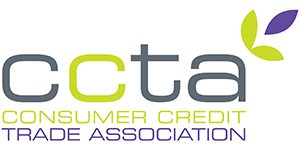One thing most people will agree on is how tough the past year has been in terms of finances. People across the UK have been struggling due to reduced working hours, being furloughed, or losing their job altogether.
Now the New Year is here, it’s important to review your spending habits and take an honest look at the state of your finances. The only way to get out (and stay out) of debt this year is to assess your situation and take steps to regain control.
Although it may seem like an insurmountable task, start by reminding yourself there IS a way out. It may not be an overnight recovery, but taking small steps on the path to being solvent again will improve your state of mind, as well as your life in practical terms.

© Sam Wordley / Shutterstock.com
How much of the UK population is in debt?
Around 30% of UK residents have suffered a severe financial hit due to the pandemic, with total personal debt levels reaching £10 billion, according to research by debt charity StepChange. This has left more than 15 million people, 23% of Britain’s total population, living on the breadline.
The pandemic plunged almost 700,000 more Brits into poverty, according to data from the Legatum Institute. This means their income is 25% or more below the official poverty line. This includes households in low paid work and people out-of-work who rely on state benefits.
The Money Advice Service estimates 8.3 million people in the UK feel their debts are insurmountable, with 22% of adults having less than £100 savings. This makes them particularly vulnerable to large unexpected bills or job loss, leading to higher rent and mortgage arrears and the associated stress.
How many people have got on top of their debts?
The good news is there’s always a way out of debt, even if it seems like a long road ahead. Despite the bleak financial statistics, some people, surprisingly, found the pandemic had the opposite effect.
Many households spent far less, as they adhered rigidly to the lockdown. According to data from the Bank of England, people working from home, on furlough, or not going out for health reasons, spent much less on frivolous things that they didn’t need.
They began putting money in the savings pot, rather than treating themselves to a shopping spree, a weekend away, a big night out, or some other luxury. Amazingly, this enabled millions of people to pay more off outstanding debts such as personal loans, HP agreements, catalogues and store cards.
In fact, the Bank of England revealed more than £5 billion of credit card debt was repaid from the second quarter of 2020 onwards, relating to when the first Covid-19 lockdown began at the end of March.
How can people get out of debt?
Although life isn’t easy for anyone at present, the truth is there’s little for people to spend their money on, in terms of leisure activities. While we all feel like having a blowout sometimes and doing some silly spending to lift our mood, this is only a short-term morale-booster.
Rather than seeing the lockdown as a negative, look on it as a time to save money and put an action plan together on how to start recovering from debt. Remember, if you’re struggling with money, there’s a way out – it’s just a case of knowing what to do.
The pandemic during 2020 has forced many of us to take a step back and reassess our life and finances. According to research by Moneyfacts, many consumers think “new year, new start”.
While consumer resilience will continue to be tested during 2021, people need to set aside time to build a solid foundation for a brighter future financially. We also need to take advantage of the free financial planning and support that’s available.
Prioritise your debts
The key to getting out of debt is to work out how much you owe and who to. Don’t hide from your debt and hope it will go away. Your priority should include housing costs, whether this is rent or your mortgage.
If you’re struggling, speak to your landlord or mortgage company; tell them you have financial problems and work out an affordable repayment plan. Most creditors are sympathetic when you keep in touch with them and make an effort to repay any debts, even small amounts.
Next come your utility bills or debts that can land you in court if you fall behind – such as the TV licence, Council Tax, or any court fines. Contact all your creditors and find out the minimum payment they will accept.
The first step to a brighter financial future is to dissect your household income and expenditure. Even if you’re paying off only a small sum, over time it will whittle away at the debt and you’ll see a reduction.
Manage your debts
Another way to get on top of your finances is to consolidate your debts. For some, juggling debts such as credit cards, overdraft, car HP, personal loan, store cards and consumer spending can be a nightmare. People may find it easier to combine all their borrowing into one single personal loan. Some companies specialise in consolidation loans, but this may not be an option if you have a poor credit rating, due to your debts and missed repayments.
Another viable option worth considering is using the services of a pawnbroker, who will help you to access extra cash on a short-term loan basis, secured on items such as jewellery, watches and even your car.
Pawnbrokers offer discreet and confidential services and you can always buy back your possessions when your financial crisis begins to ease. It can also be quicker to use the services of a pawnbroker, rather than waiting for a consolidation loan provider to run the standard checks.
If you decide to consolidate, make sure you destroy your credit cards and close the accounts once you have repaid the balance, to avoid the temptation of falling into debt again.



